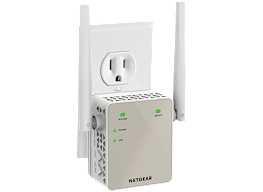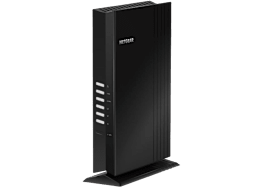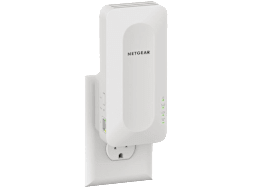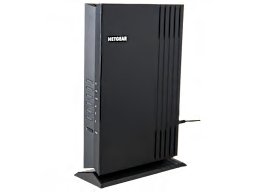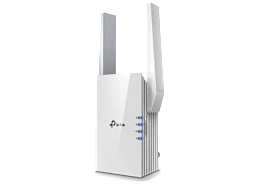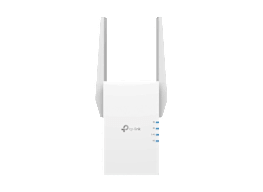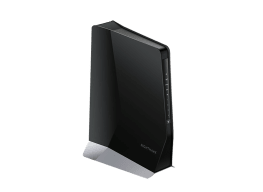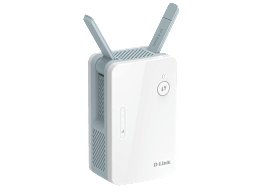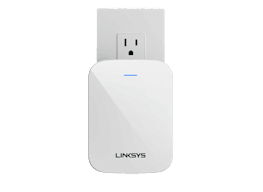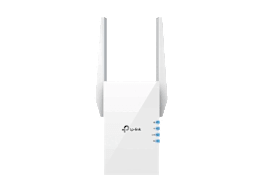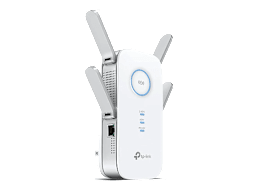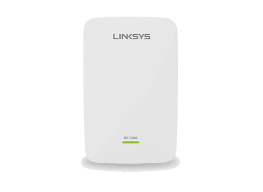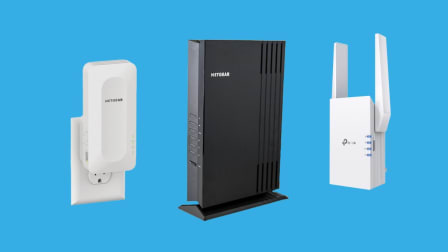Should You Buy a WiFi Extender?
The top-rated models can cure WiFi dead spots, but sometimes it makes more sense to invest in a mesh router. Here's what you need to know.
When you shop through retailer links on our site, we may earn affiliate commissions. 100% of the fees we collect are used to support our nonprofit mission. Learn more.

To anyone with a slow, spotty internet connection, WiFi range extenders sound like a bargain. You buy one for as little as $20, plug it into an outlet, and your problem is solved. Or so the marketing goes. The truth, however, is more nuanced.
How Does a WiFi Extender Work?
While it’s tempting to think of a WiFi extender as something that can beam fast, reliable WiFi throughout your home, it’s really more of a spot-fix for a single, specific dead zone in your layout.
To get the best results, you have to plug the extender into a power outlet midway between your router and the troublesome area. The extender then picks up the WiFi signal from your router and pushes it deeper into your home.
But you’re likely to notice a significant drop in throughput speeds in the “extended” network. That’s in part because an extender relies on the same frequency band as the router itself.
“In the radio frequency world, they’re called repeaters, but in WiFi they’re called extenders,” says Henry Parra, who leads CR’s testing of smartphones and wireless routers. “They repeat the signal on the same frequency to extend coverage.”
Because the signal is now going through an intermediate step, throughput—or what you and I might simply call “speed”—is now cut in half.
For example, let’s say you’re standing right next to your WiFi router (where the signal is strongest) and get 50 megabits per second, which is fast enough to stream one, maybe two 4K Netflix shows at the same time. If you were to set up a WiFi extender, then you’d be looking at about 25 megabits per second with the extended network. And that’s in an ideal world, where the WiFi signal hasn’t been degraded by obstacles such as thick walls or large appliances.
By contrast, mesh routers use two different frequency bands, which limits the speed loss to roughly 10 percent. They also allow you to move the satellite units around your home, steering a WiFi signal around obstacles.
What CR's Testing Shows
There are currently 13 WiFi extenders in our ratings, all of which you simply plug into an outlet and set up using either a mobile app or a web-based wizard.
We use a professional wireless performance software suite to test each model’s capabilities. This software measures the throughput of the extender directly from a nearby computer. That gives us more precise data than if we were to rely on a web-based service such as Speedtest.net or Fast.com. That’s because data is transmitted directly between the extender and a computer and not over the internet, which can introduce latency. We do three “runs” and then average the measurements to come up with our final throughput score.
In our labs, we place the extender being tested inside a room down the hall and around the corner from the laptop used in the test. This is done to simulate a typical home environment, where you might have your router in one room and the extender in another. We then vary the distance between the laptop and the extender (from 8 to 20 to 35 to 55 feet) to measure the extender’s effectiveness at various distances.
In practice, there’s a balance you want to strike when setting up an extender. The farther you place it from the router, the more you risk losing signal speed. But place it too close to the router and you may not be able to push the signal to the desired location. In the instructions included with the extenders, manufacturers recommend placing the unit about halfway between the router and the area you hope to reach.
So to answer the question of whether or not you should get a WiFi extender, here’s how to think about it.
If your goal is simply to get WiFi in that one dead zone in your home, a spot where you like to browse the web and check email, our testing shows that you should be prepared to spend around $50 for an extender. You can pay more for bells and whistles like built-in Ethernet and USB ports, but the performance is roughly the same.
At the moment, extenders that cost less than $30 fare less well in our tests.
For example, the TP-Link RE220, which retails for about $20 (and which we’ve seen on sale for as low as $17 on Amazon), and the Netgear EX6120, $36, sure do seem appealing. But our tests show their performance to be quite poor, earning low marks in terms of speed (even at short distances) and versatility. So you have to either limit your expectations or shop at a retailer with a generous return policy.
If you’re hoping to do more demanding tasks, like stream 4K video or play online games that require low latency, you ought to consider a mesh network. Those range in price from $100 to $1,000 but offer a more robust solution, using two or three units that work together to deliver fast WiFi throughout your whole home—not just to one room. And, really, given that prices for mesh routers have fallen quite a bit since the technology was first introduced, you can now find capable models for well under $150 from well-known brands like Google and TP-Link.
For more guidance, Consumer Reports members can check our full ratings of WiFi extenders and routers and consult our article on the best low-cost mesh routers.

















